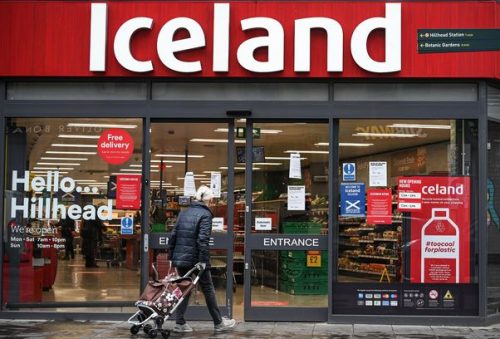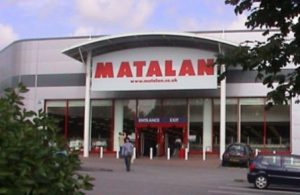Food retailer Iceland slips to annual loss, but is well placed as budgets are squeezed

Frozen foods retailer, Iceland, slipped to a £4.1m annual loss for the year to March 25, 2022, compared with a £73m pre-tax profit the previous year, despite record-breaking Christmas sales.
It also shed more than 1,400 jobs as shoppers returned to pre-pandemic habits.
In accounts filed with Companies House, the Deeside-based foods group revealed its turnover also suffered a decline, hitting £3.555bn for the latest financial year, down from £3.715bn the year before.
No dividend is recommended this year for shareholders. Last year £149.2m was paid out in dividends.
However, cash reserves rose from £124.3m in 2021 to £151.5m for the 2022 financial year.
But the group’s debt rating has been downgraded by Moody’s, which said: “The negative outlook reflects the risk that Iceland’s profitability may remain depressed over the next 12-18 months and that its currently still adequate liquidity profile could deteriorate driven by negative free cash flows and the need to refinance outstanding debt.”
Iceland’s directors’ report said the fall in revenues was due to a period of “exceptional demand” the previous year due to the pandemic and lockdowns and restrictions.
It said sales benefited from 16 new stores opened in the previous year, but there was a net reduction of two stores during the current reporting period.
The retailer also said it was impacted by a rise in sickness and worker absences on the run-up to Christmas due to an increase in COVID rates, as well as delivery driver shortages.
As customer demand shifted back to pre-pandemic habits, the group recorded a reduction in its average headcount from 30,256 in 2021, to 28,853 in 2022, although this was achieved through natural attrition.
Iceland said it has traded well in the opening weeks of its new financial year, and its online business is successfully holding the increased market share it secured during the pandemic.
It said: “The fundamentals of our market positioning means that we are very strongly placed in the current testing environment for consumers.
“Iceland has always performed strongly in the past during period when the GDP has contracted and household incomes have been squeezed.
“Research has long demonstrated that frozen food offers families substantial savings in both spending and food waste compared to fresh food, and we expect to see growing numbers of consumers moving from fresh to frozen as household budgets come under increasing pressure.”







